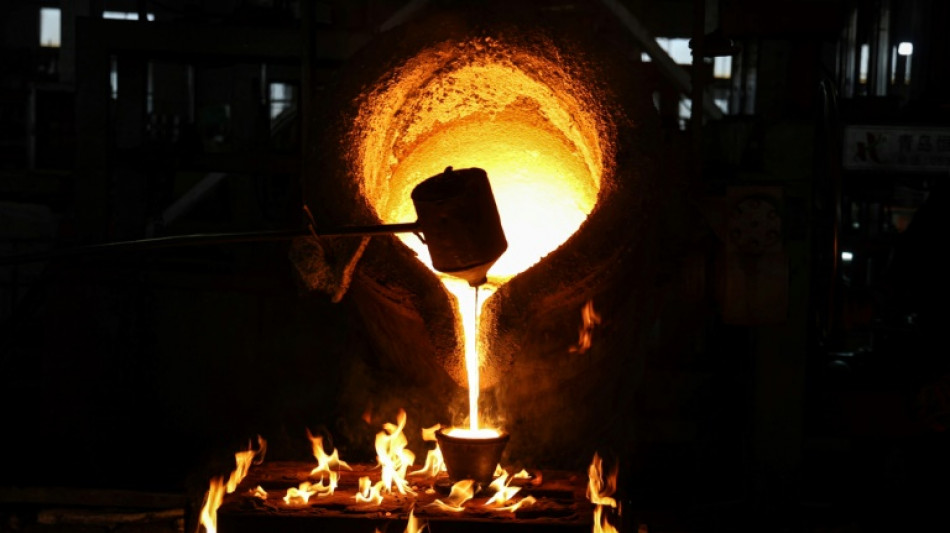
-
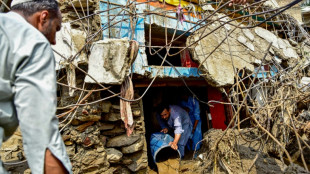 Pakistan rescuers recover bodies after monsoon rains kill 340
Pakistan rescuers recover bodies after monsoon rains kill 340
-
Hurricane Erin intensifies to category 3 storm as it nears Caribbean
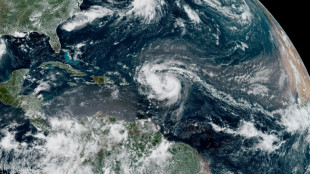
-
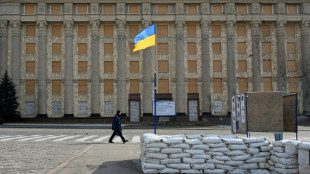 Ukrainians see 'nothing' good from Trump-Putin meeting
Ukrainians see 'nothing' good from Trump-Putin meeting
-
Pakistan rescuers recover bodies after monsoon rains kill 320

-
 Bob Simpson: Australian cricket captain and influential coach
Bob Simpson: Australian cricket captain and influential coach
-
Air Canada flight attendants strike over pay, shutting down service
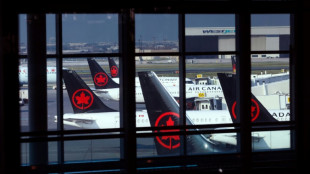
-
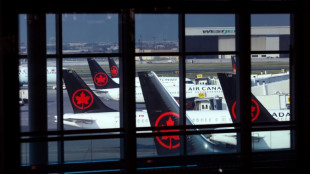 Air Canada set to shut down over flight attendants strike
Air Canada set to shut down over flight attendants strike
-
Sabalenka and Gauff crash out in Cincinnati as Alcaraz survives to reach semis
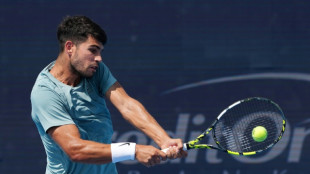
-
 Majority of Americans think alcohol bad for health: poll
Majority of Americans think alcohol bad for health: poll
-
Hurricane Erin intensifies in Atlantic, eyes Caribbean
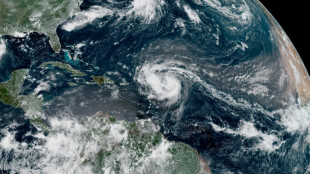
-
 Louisiana sues Roblox game platform over child safety
Louisiana sues Roblox game platform over child safety
-
Trump and Putin end summit without Ukraine deal
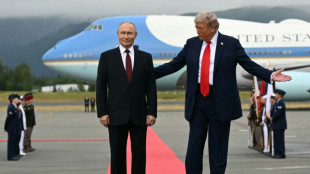
-
 Kildunne confident Women's Rugby World Cup 'heartbreak' can inspire England to glory
Kildunne confident Women's Rugby World Cup 'heartbreak' can inspire England to glory
-
Arsenal 'digging for gold' as title bid starts at new-look Man Utd

-
 El Salvador to jail gang suspects without trial until 2027
El Salvador to jail gang suspects without trial until 2027
-
Alcaraz survives to reach Cincy semis as Rybakina topples No. 1 Sabalenka
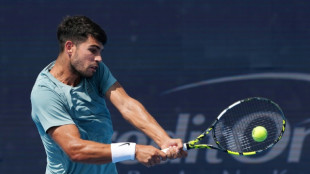
-
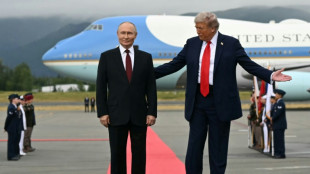 Trump, Putin cite progress but no Ukraine deal at summit
Trump, Putin cite progress but no Ukraine deal at summit
-
Trump hails Putin summit but no specifics on Ukraine
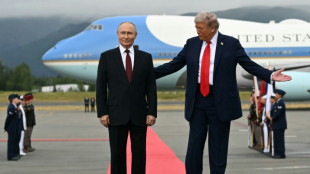
-
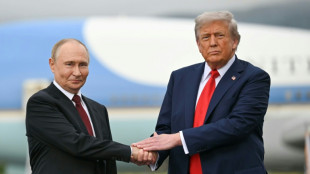 Trump, Putin wrap up high-stakes Ukraine talks
Trump, Putin wrap up high-stakes Ukraine talks
-
El Salvador extends detention of suspected gang members
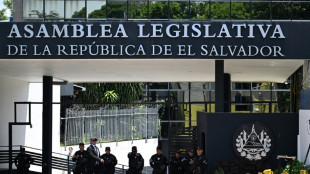
-
 Scotland's MacIntyre fires 64 to stay atop BMW Championship
Scotland's MacIntyre fires 64 to stay atop BMW Championship
-
Colombia's Munoz fires 59 to grab LIV Golf Indy lead

-
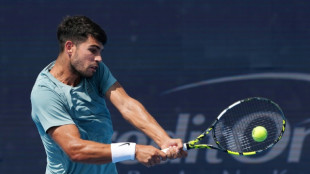 Alcaraz survives Rublev to reach Cincy semis as Rybakina topples No. 1 Sabalenka
Alcaraz survives Rublev to reach Cincy semis as Rybakina topples No. 1 Sabalenka
-
Trump offers warm welcome to Putin at high-stakes summit
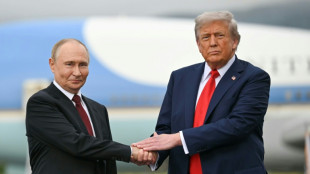
-
 Semenyo racist abuse at Liverpool shocks Bournemouth captain Smith
Semenyo racist abuse at Liverpool shocks Bournemouth captain Smith
-
After repeated explosions, new test for Musk's megarocket
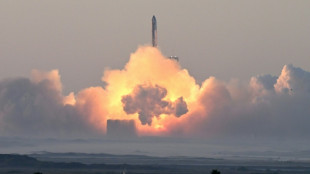
-
 Liverpool strike late to beat Bournemouth as Jota remembered in Premier League opener
Liverpool strike late to beat Bournemouth as Jota remembered in Premier League opener
-
Messi expected to return for Miami against Galaxy

-
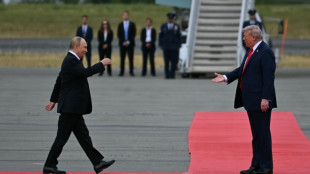 Made-for-TV pageantry as Trump brings Putin in from cold
Made-for-TV pageantry as Trump brings Putin in from cold
-
Coman bids farewell to Bayern before move to Saudi side Al Nassr

-
 Vietnamese rice grower helps tackle Cuba's food shortage
Vietnamese rice grower helps tackle Cuba's food shortage
-
Trump, Putin shake hands at start of Alaska summit
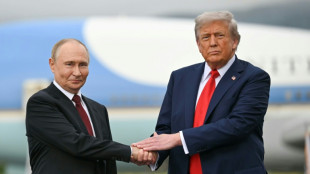
-
 Coman bids farewell to Bayern ahead of Saudi transfer
Coman bids farewell to Bayern ahead of Saudi transfer
-
Liverpool honour Jota in emotional Premier League curtain-raiser
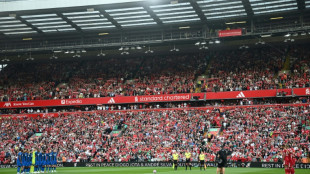
-
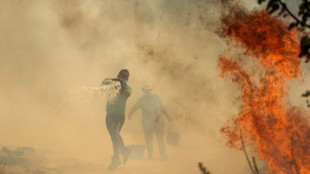 Portugal wildfires claim first victim, as Spain on wildfire alert
Portugal wildfires claim first victim, as Spain on wildfire alert
-
Davos founder Schwab cleared of misconduct by WEF probe
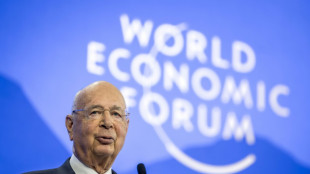
-
 Rybakina rips No.1 Sabalenka to book Cincinnati semi with Swiatek
Rybakina rips No.1 Sabalenka to book Cincinnati semi with Swiatek
-
Trump lands in Alaska for summit with Putin
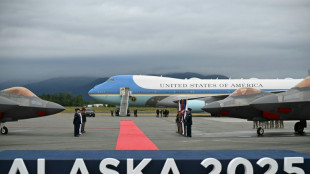
-
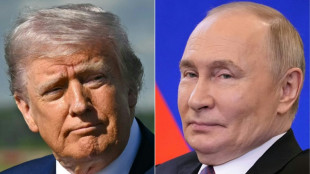 Falsehoods swirl around Trump-Putin summit
Falsehoods swirl around Trump-Putin summit
-
US retail sales rise amid limited consumer tariff hit so far
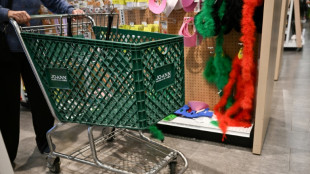
-
 Liverpool sign Parma teenager Leoni
Liverpool sign Parma teenager Leoni
-
Canadian football teams will hit the road for 2026 World Cup

-
 Bethell to become England's youngest cricket captain against Ireland
Bethell to become England's youngest cricket captain against Ireland
-
Marc Marquez seeks elusive first win in Austria

-
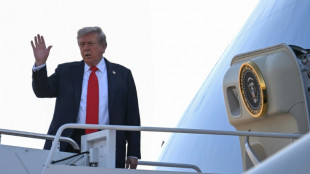 Trump, Putin head for high-stakes Alaska summit
Trump, Putin head for high-stakes Alaska summit
-
Brazil court to rule from Sept 2 in Bolsonaro coup trial
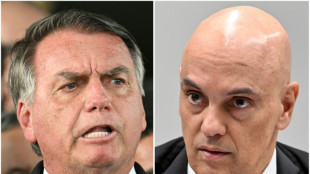
-
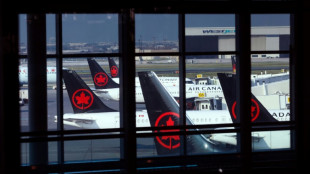 Deadline looms to avert Air Canada strike
Deadline looms to avert Air Canada strike
-
Spain on heat alert and 'very high to extreme' fire risk
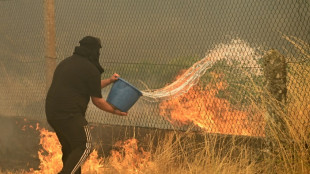
-
 Taliban mark fourth year in power in Afghanistan
Taliban mark fourth year in power in Afghanistan
-
Grand Slam Track won't happen in 2026 till athletes paid for 2025


Trump tariffs threaten Latin American steel industry
Chile's largest steel plant shut down last year, yielding to cheaper production in China.
Now, six months later, the tariffs that President Donald Trump has imposed on US imports of the metal threaten the livelihood of 1.4 million workers in Latin America.
As he did during his first term in office from 2017 to 2021, Trump is trying to protect American producers by making steel imports costlier with a 25 percent tariff that kicked in on March 12.
The United States imports 25 million tons of steel each year, and Canada is it main supplier, followed by Brazil and Mexico, each with products tailored to other industries like car manufacturing and construction.
The United States relies on Latin America for specialized steel products, said Ezequiel Tavernelli, head of the Latin American Steel Association, Alacero.
With the world awash steel production overcapacity, and China the main offender, the Trump tariffs will distort the market.
"The only thing they will bring is a flood of steel" that had been headed to the United States and is now rerouted to regions that are less protected and have less ability to defend themselves, like Latin America, said Tavernelli.
To explain the threat he gives these figures: in 2000 China exported less than 100,000 tons of steel a year to Latin America, but today it is more than 14 million tons. The growth is exponential.
Steel production in Latin America has been falling for three years. And the Chinese share of what is consumed is getting bigger and bigger .
And now, due to the Trump tariffs Latin American producers will not only lose market share in the United States but also miss out in some markets of their own region due to Chinese competition.
- When it rains it pours-
The numbers are jarring. China accounts for more than 45 percent of the world's steel production capacity and produces 140 million tons it does not need.
It dumps this excess cheaply on the international market, says Alacero, which says China produces 23 percent of the world's excess steel.
"The main problem of our region, and that of the United States, is world steel overcapacity," Tavernelli told AFP.
And China behaves disloyally, he argued, by selling steel below cost thanks to government subsidies.
In September of last year Chile endured what Tavernelli is talking about. Its Huachipato steelworks, the country's largest, shut down its blast furnaces for good.
With the smoke that drifted out of its chimneys went nearly 75 years of company history. Chinese steel was 40 percent cheaper and Huachipato simply could not compete.
Alacero argues that regionalization of supply chains -- for instance, US steel producers, car makers and construction companies buy Latin American steel -- "is the best way to defend against disloyal business by China and countries of Southeast Asia."
As Brazil's vice president Geraldo Alckmin, who is also the minister of development and industry, put it, the region's goal should be to achieve "economic complementarity."
Brazil and Mexico are negotiating with the United States to try to win exemptions from the US tariffs, and managed to pull this off during Trump's first term in power.
In the same vein, Mexico's iron and steel producers association, Canacero, said last month there is a high level of production integration between the US and Mexican steel industries and regional benefits should be the priority in the face of the threat of excess capacity of China and Southeast Asia.
So there is the risk that more long-standing firms like Huachipato will have to shut down, said Tavernelli, who insisted the countries of Latin America have to work together.
Q.Bulbul--SF-PST
